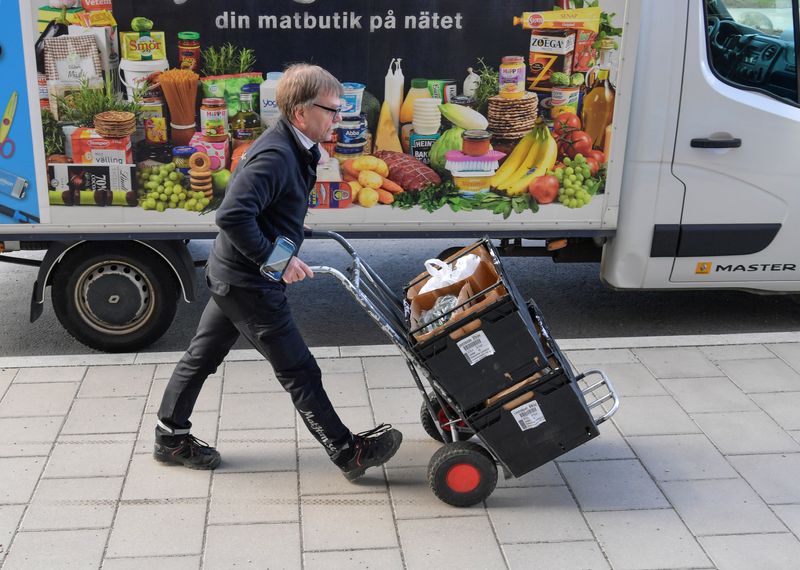By Marie Mannes
STOCKHOLM (Reuters) - Sweden's competition authority has expressed concern about margins being charged by supermarkets and wholesalers as it probes possible profiteering in a country that saw the largest food price increases in the Nordics this year.
Food inflation is a key driver of the cost-of-living crisis in a number of European countries, forcing some to impose price caps on certain food items to help struggling consumers.
France's biggest food companies have pledged to cut prices on hundreds of products from next month after being threatened with financial sanctions if they didn't. Hungary also imposed caps but will phase them out from August.
Sweden's competition authority on Tuesday will publish the initial findings from an investigation into food prices and competition requested by Sweden's finance ministry in March.
"When we look at the margins on the retail and wholesale side, we see some cause of concern in terms of how they're developing," Martin Mandorff, head of market abuse at the competition authority, told Reuters.
"The way the margins are developing, it had better be connected to increasing cost, otherwise we might be quite worried," said Mandorff.
Mandorff said it is difficult to isolate cost factors like energy prices and the Ukraine war from the competitive landscape.
The agency is investigating the whole food supply chain from producers, wholesalers to the retail sector and has collected data from Sweden's main supermarkets on prices and margins.
The agency will request further information from the chains and will publish additional findings later in the year.
OLIGOPOLISTIC
Sweden's grocery sector is dominated by three main players, making it an "oligopolistic" situation, Mandorff said.
Premium food chain ICA had a 53% market share in 2022 according to the competition authority. Axfood and Coop occupied most of the remainder. German discounter Lidl entered Sweden in 2018 but in 2022 only had a 5.7% market share.
Mandorff said recent high prices had led to higher competitive pressure, with previously niche discount stores now taking more market share, including from the largest players.
Finance Minister Elisabeth Svantesson called in the three major supermarket chains for discussions earlier in the year to answer for the high prices after which the supermarkets temporarily cut prices on some products.
"We think, as a government, that it is enormously important to make sure there is good competition in different markets," Svantesson told parliament last week.
The minister told Swedish public broadcaster SVT in March that companies should not unjustifiably raise their prices but that politicians should not contemplate price caps.
Axfood said it welcomed the investigation from the agency.
"We have a frequent and constructive dialogue with the Swedish Competition Authority and look forward to the conclusions of the investigation," the company said.
ICA said it consists of 13,000 stores that are owned by independent retailers that compete with each other, with the prices being set by individual stores.

It added that it had reduced prices on everyday products and continued to work on making long-term price reductions.
Coop declined to comment.
